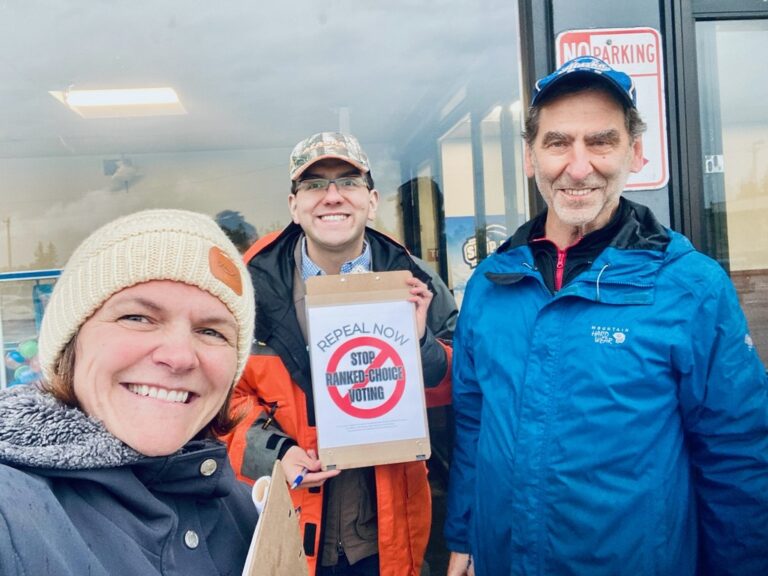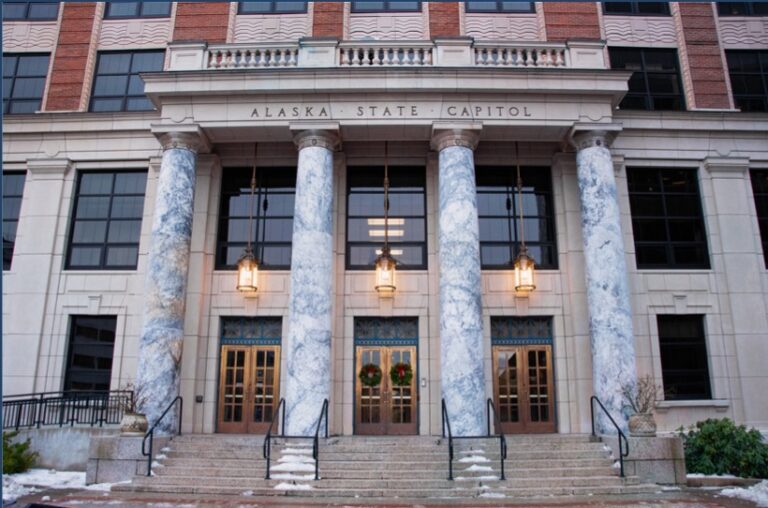By GOV. MIKE DUNLEAVY
Throughout the history of the United States there have been moments of national loss that remind us of the values that bind us together as Americans. Today, I write this as not only your governor, but as a citizen of our great country who is mourning the passing of Charlie Kirk. He was a son, husband, and father of two small children whose life was cut short by an act of senseless violence. Yet his courage and the life he lived must call each of us to a higher standard of civic responsibility.
Charlie was a fierce defender of the First Amendment. Free speech was not an abstract principle to him, but a lived commitment. He understood that the right to speak freely, to debate, and to disagree without fear is not merely one freedom among many. It is the cornerstone on which our country was built, the very framework that allows every other freedom to exist. This God-given right and the others detailed in the Constitution separates America from the rest of the world. Tragically, Charlie paid the ultimate price reminding us of its importance.
From a very young age, Charlie recognized that we all have the responsibility to engage in civil dialogue. He did not choose safe ground or sympathetic audiences. Instead, he visited college campuses where he knew his ideas would be challenged, sometimes shouted down. He believed that truth must be spoken in every place, not just the comfortable ones, inviting those who disagreed with him to the front of the line so that he could give them an opportunity to disagree with him.
Kirk had an uncommon courage, rooted not in anger or resentment, but in principle. He willingly entered the arena of ideas even when hostility was certain because he believed in America’s founding ideals with a conviction that could not be shaken. He believed that our Constitution was not a relic to be ignored, but a living guarantee that ensures every voice, every faith, and every idea has the right to be heard. He demonstrated courage not by shouting people down but by his refusal to be silent when silence would have been easier.
Charlie believed that rational debate was not something to be feared but embraced. For Alaska, and for America, spreading this message could not come at a more critical time. Too often, we see neighbors treating each as enemies and the public square has been replaced with online shouting matches that solve nothing.
You couldn’t watch Charlie’s approach to a conversation without recognizing that it was special. He challenged people with grace to think critically about their beliefs. He often silenced his own supporters when they were being rude to a person with an opposing point of view. He was a model example of how to live his faith as a Christian, while fighting for the truth in the world.
Charlie never pretended that all Americans would agree about everything. Instead, he showed us that differences can be confronted with kindness, honesty, and civility. By his approach, he left behind a challenge to all of us: if you believe in something, speak it. If you disagree, do so with respect. And never allow fear of criticism or retaliation to keep you from standing firm in your convictions.
We must commit ourselves, as Alaskans and as Americans, to this same principle. The First Amendment is not a partisan value. It does not belong to one party or one ideology. It belongs to every citizen, whether conservative, liberal, or independent. It belongs to every faith and every background. When one voice is silenced, all voices are threatened.
As governor, I pledge to do everything I can to protect the First Amendment in Alaska. Whether in our schools, our universities, or our community halls, free speech must not only be protected but encouraged. We will not shy away from difficult conversations, and we will not silence those we disagree with. We will show America that dialogue is possible, even in disagreement, and that civility is not weakness but strength.
To honor Charlie, let us not simply mourn his loss, but also rise to the standard he set. Let us reject the temptation to retreat into silence or tribalism. We must recommit ourselves to protecting the First Amendment. We must teach our children that disagreement is not dangerous and that they should have the courage to face opposing points of view with conviction and grace.
Charlie Kirk’s time with us was too short, but his example will endure. May we in Alaska, and across this nation, live up to his example. May we guard the First Amendment with the same boldness that he carried into every room. Let’s honor Charlie Kirk by promoting what we all should believe that America is at its best when we are free to speak, debate, and seek truth together.
Governor Mike Dunleavy, 12th governor of Alaska.









